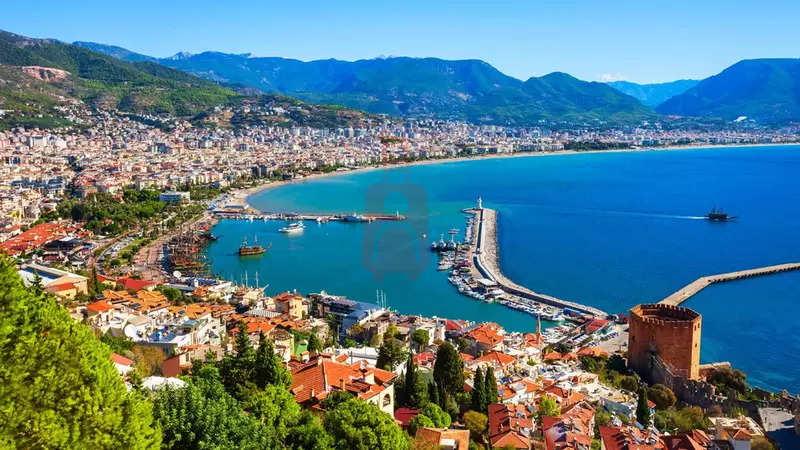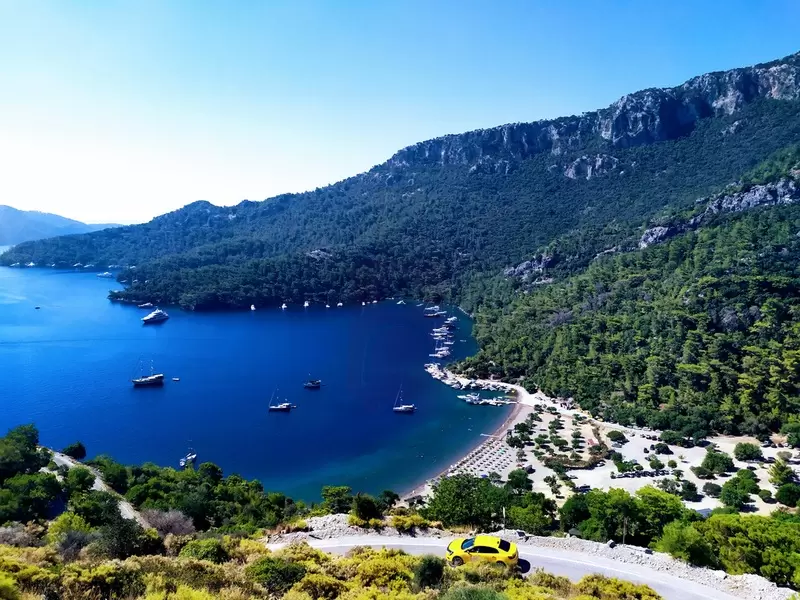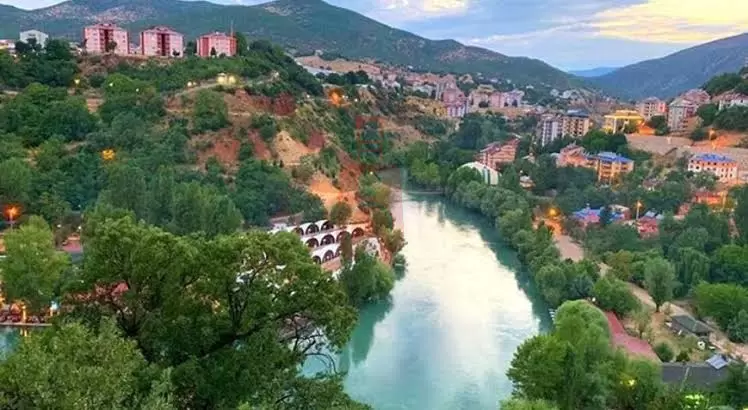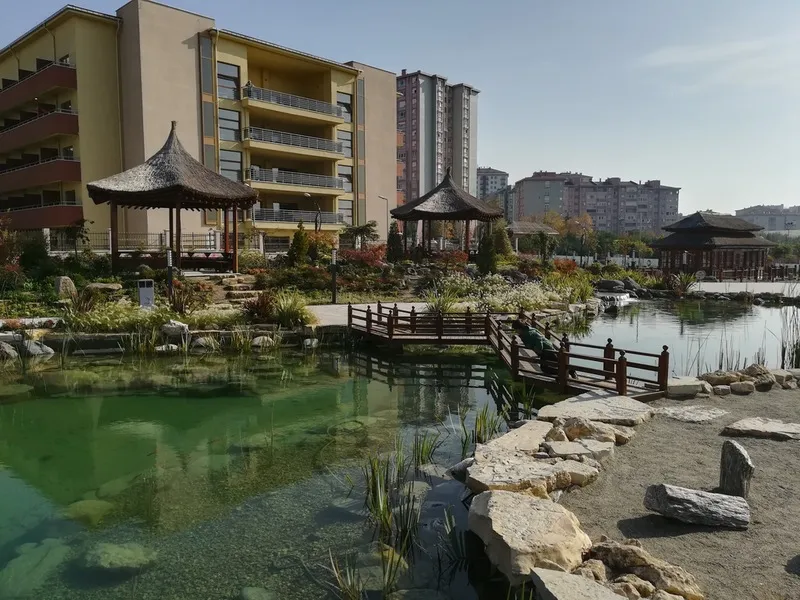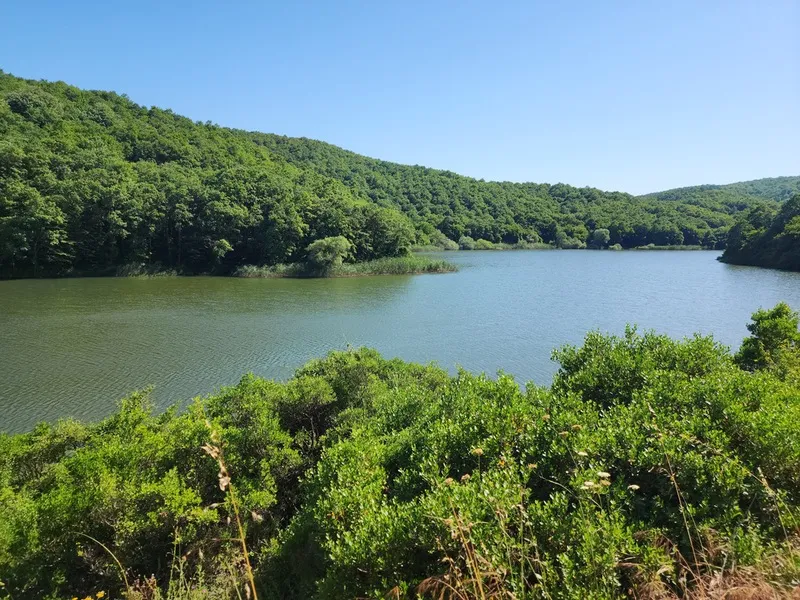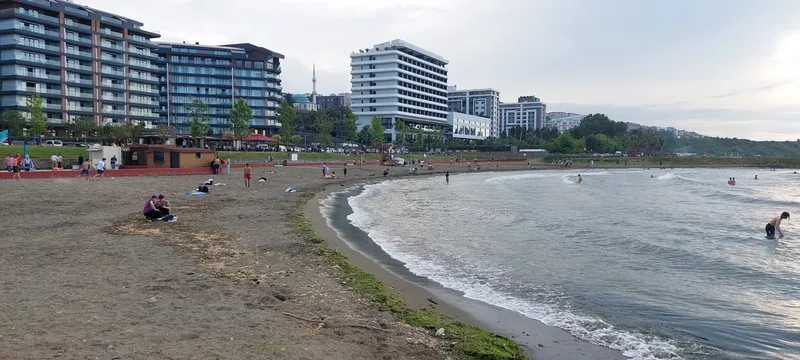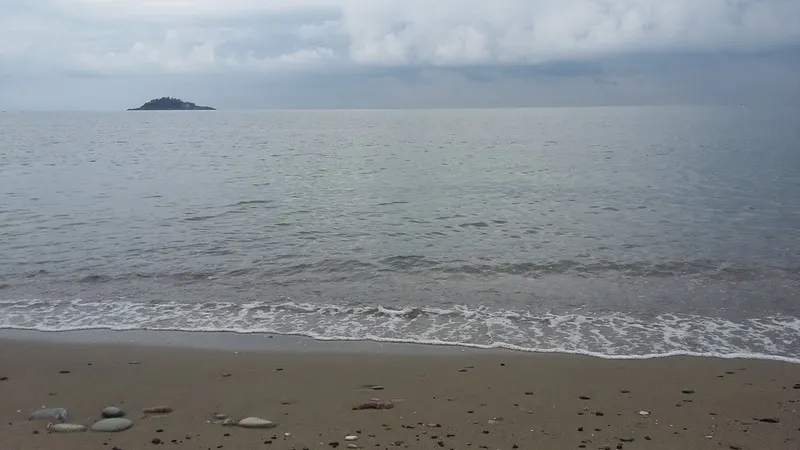Responsible Tourism Experiences in Türkiye: A Journey of Respect and Discovery
Türkiye, a land of captivating history, stunning landscapes, and vibrant culture, is increasingly embracing responsible tourism. This approach moves beyond mere sightseeing, encouraging travelers to engage with local communities, minimize their environmental impact, and contribute to the preservation of Türkiyes unique heritage. Responsible tourism is not just a trend; its a commitment to ensuring that travel benefits both visitors and the destinations they explore. This detailed guide will navigate you through various responsible tourism experiences across Türkiye, highlighting destinations and activities that prioritize sustainability and ethical engagement.
Understanding Responsible Tourism in Türkiye
Responsible tourism in Türkiye revolves around several key principles: minimizing environmental impact, respecting local culture and traditions, supporting local economies, and promoting fair employment practices. It also entails educating travelers about responsible behaviors and encouraging them to make conscious choices throughout their journey. The goal is to create a positive and lasting impact on the destinations and communities visited, ensuring that future generations can enjoy the same rich cultural and natural heritage.
The Turkish government and various NGOs are actively promoting responsible tourism initiatives through certifications, training programs, and conservation projects. Many local businesses are adopting sustainable practices, from eco-friendly accommodations to organic farming and community-based tourism projects. As a traveler, you can contribute by choosing responsible operators, participating in sustainable activities, and making informed decisions about your consumption and interactions.
Destinations and Experiences: A Responsible Travelers Guide to Türkiye
Türkiye offers a wealth of opportunities for responsible tourism, spanning its diverse regions. Here are some examples:
[Cappadocia]: Fairy Chimneys and Sustainable Practices
Cappadocia, renowned for its otherworldly landscapes of fairy chimneys and ancient cave dwellings, faces significant environmental and cultural challenges due to mass tourism. Responsible tourism in Cappadocia focuses on preserving the fragile ecosystem and supporting the local communities that have shaped this unique region.
Activities:
*Hot Air Ballooning with Sustainable Operators: Opt for balloon tour operators that prioritize environmental impact. Look for those who use eco-friendly fuel, minimize noise pollution, and contribute to local conservation efforts.
*Hiking and Trekking with Respect: Stick to marked trails to avoid damaging the unique flora and fauna. Consider hiring a local guide who can share insights into the regions natural history and cultural significance.
*Staying in Cave Hotels with Eco-Certifications: Choose cave hotels that have implemented sustainable practices, such as water conservation, energy efficiency, and waste reduction. Look for accommodations with recognized eco-labels.
*Supporting Local Artisans and Businesses: Purchase locally crafted ceramics, carpets, and textiles directly from artisans, ensuring fair prices and supporting traditional crafts. Dine at family-run restaurants that use locally sourced ingredients.
*Visiting Underground Cities Responsibly: When exploring the underground cities, be mindful of the fragile structures and follow the guidelines provided by the site authorities. Avoid touching the walls or removing any artifacts.
*Participating in Local Workshops: Engage in hands-on workshops that teach traditional crafts like pottery making, carpet weaving, or cooking. These experiences provide a deeper understanding of the local culture and support local livelihoods.
[Ephesus]: Preserving Ancient History with Respect
Ephesus, one of the best-preserved ancient cities in the world, draws countless visitors each year. Responsible tourism here focuses on protecting the archaeological site, supporting the local community, and respecting the historical significance of the area.
Activities:
*Guided Tours with Knowledgeable Experts: Choose guided tours led by licensed local guides who are passionate about the history and culture of Ephesus. They can provide valuable insights and ensure you visit the site respectfully.
*Visiting Ephesus Museum: The Ephesus Museum in Selçuk houses a rich collection of artifacts unearthed from the ancient city. Visiting the museum provides a deeper understanding of Ephesuss history and culture.
*Supporting Local Businesses in Selçuk: The town of Selçuk, near Ephesus, offers a range of local shops and restaurants. By patronizing these businesses, you contribute to the local economy and support the community.
*Responsible Photography: Be mindful of your photography habits and avoid using flash photography in enclosed areas. Respect any restrictions on photography in certain sections of the site.
*Respecting the Site Boundaries: Stay on designated paths and avoid climbing on the ruins. Help preserve the site by not touching the ancient structures or removing any stones.
*Visiting the House of the Virgin Mary Respectfully: The House of the Virgin Mary, located near Ephesus, is a place of pilgrimage for Christians. Visit the site with respect and maintain a quiet and reverent atmosphere.
[Antalya]: Coastal Conservation and Eco-Friendly Activities
Antalya, with its stunning coastline and natural beauty, faces challenges from overdevelopment and tourism. Responsible tourism in Antalya focuses on protecting the coastal environment, promoting eco-friendly activities, and supporting local communities.
Activities:
*Choosing Eco-Friendly Accommodations: Opt for hotels and guesthouses that have implemented sustainable practices, such as water conservation, energy efficiency, and waste reduction.
*Participating in Beach Cleanups: Join local organizations in beach cleanup initiatives to help remove litter and protect marine life.
*Scuba Diving and Snorkeling Responsibly: Choose diving and snorkeling operators that follow responsible practices and avoid damaging coral reefs or disturbing marine habitats.
*Hiking and Trekking in National Parks: Explore the regions national parks, such as Köprülü Canyon National Park, on foot. Stick to marked trails and avoid disturbing the natural environment.
*Supporting Local Farmers Markets: Visit local farmers markets to purchase fresh, seasonal produce directly from farmers, supporting local agriculture and reducing your carbon footprint.
*Exploring Ancient Ruins with Respect: Antalya is home to numerous ancient ruins, such as Perge and Aspendos. Visit these sites respectfully, adhering to any guidelines and avoiding damage to the historical structures.
[Istanbul]: Balancing Cultural Heritage and Sustainable Urban Living
Istanbul, a sprawling metropolis with a rich history and vibrant culture, presents unique challenges for responsible tourism. Balancing the preservation of its cultural heritage with the needs of a growing population and the influx of tourists requires careful planning and conscious choices.
Activities:
*Using Public Transportation: Utilize Istanbuls extensive public transportation network, including trams, buses, and ferries, to reduce your carbon footprint and avoid traffic congestion.
*Walking Tours in Historical Districts: Explore the historic districts of Sultanahmet and Beyoğlu on foot, allowing you to appreciate the architecture, culture, and atmosphere at a slower pace. Consider hiring a local guide who can provide insights into the citys history and culture.
*Supporting Local Restaurants and Cafes: Dine at local restaurants and cafes that serve traditional Turkish cuisine and support local farmers and producers.
*Visiting Museums and Cultural Sites Responsibly: Respect the rules and regulations of museums and cultural sites, avoid touching artifacts, and refrain from using flash photography.
*Shopping at Local Markets and Artisan Shops: Explore Istanbuls bustling markets and artisan shops, such as the Grand Bazaar and the Spice Bazaar. Purchase locally made goods and support local businesses.
*Attending Cultural Events and Performances: Experience Istanbuls vibrant cultural scene by attending concerts, theater performances, and traditional dance shows. Support local artists and performers by purchasing tickets and attending their events.
*Respecting Local Customs and Traditions: Dress modestly when visiting religious sites and be mindful of local customs and traditions. Learn a few basic Turkish phrases to show respect and engage with locals.
[Black Sea Region]: Ecotourism and Community-Based Initiatives
The Black Sea Region, known for its lush green mountains and traditional villages, offers opportunities for ecotourism and community-based initiatives. Responsible tourism here focuses on preserving the natural environment, supporting local communities, and promoting sustainable livelihoods.
Activities:
*Hiking and Trekking in the Mountains: Explore the regions stunning mountains on foot, following marked trails and avoiding disturbing the natural environment. Hire a local guide who can share insights into the regions flora and fauna.
*Staying in Village Guesthouses: Choose to stay in village guesthouses that are run by local families. This provides an authentic cultural experience and supports local livelihoods.
*Participating in Farm Stays: Experience life on a traditional Turkish farm by participating in a farm stay. Learn about local farming practices, help with daily chores, and enjoy fresh, locally sourced meals.
*Visiting Local Tea Plantations: The Black Sea Region is famous for its tea production. Visit local tea plantations to learn about the tea-making process and sample different varieties of Turkish tea.
*Supporting Local Artisans and Crafts: Purchase locally made crafts, such as hand-knitted sweaters, wooden carvings, and traditional pottery, directly from artisans.
*Exploring Traditional Villages: Wander through traditional villages and observe the local way of life. Engage with villagers respectfully and learn about their customs and traditions.
Tips for Responsible Travelers in Türkiye
Here are some practical tips to help you travel responsibly in Türkiye:
*Do Your Research: Before you travel, research responsible tour operators, accommodations, and activities in your chosen destinations.
*Support Local Businesses: Patronize locally owned restaurants, shops, and hotels to support the local economy and ensure that your money stays within the community.
*Respect Local Culture: Learn about Turkish customs and traditions, and dress modestly when visiting religious sites. Be mindful of local etiquette and avoid behaviors that may be considered offensive.
*Minimize Your Environmental Impact: Reduce your use of plastic, conserve water and energy, and dispose of waste responsibly. Choose eco-friendly transportation options whenever possible.
*Learn Some Turkish: Learning a few basic Turkish phrases will help you communicate with locals, show respect for their culture, and enhance your travel experience.
*Be a Conscious Consumer: Make informed choices about the products and services you consume, opting for sustainable and ethically sourced options.
*Leave No Trace: Pack out everything you pack in and avoid leaving any litter or waste behind. Respect the natural environment and avoid disturbing wildlife.
*Engage with Local Communities: Take the time to interact with local people, learn about their lives and culture, and contribute positively to their communities.
The Future of Responsible Tourism in Türkiye
Responsible tourism is not just a passing trend; it is a vital component of sustainable development in Türkiye. By embracing responsible practices, travelers can contribute to the preservation of Türkiyes unique cultural and natural heritage, support local communities, and ensure that future generations can enjoy the same enriching experiences. As awareness of responsible tourism grows, more businesses and organizations are adopting sustainable practices, creating a positive cycle of change. By making conscious choices and supporting responsible initiatives, travelers can play a crucial role in shaping the future of tourism in Türkiye.
